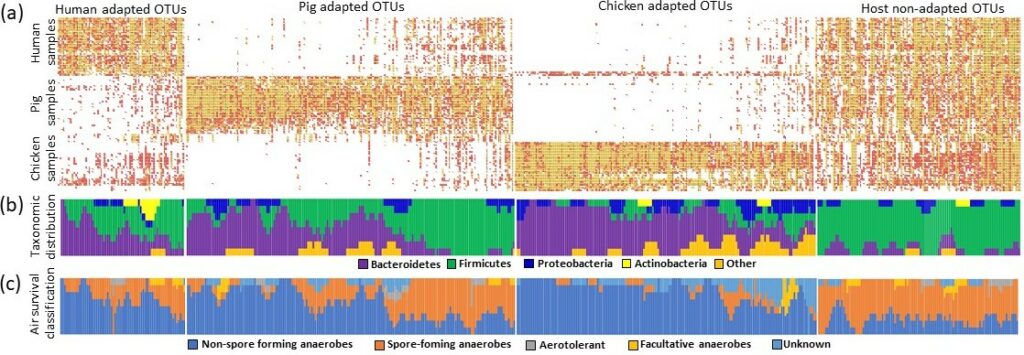We have published a new paper comparing chicken, pig, human and even Antarctic penguin microbiota in the Microorganisms journal. Apparently strange idea has brought interesting findings. We have found out that bacteria belonging to phylum Bacteroidetes exhibit host adaptation while representatives of phylum Firmicutes were usually broadly distributed among different hosts. Host adaptation is not directly associated with taxonomic classification but correlates with the ability of gut anaerobes to survive in external environment. Bacterial species exhibiting some form of their existence resistant to aerobic environment may survive outside eukaryotic host and easily spread to another host. Since Firmicutes include spore forming Clostridiales and aerotolerant Bacillales, global distribution among different hosts is typical for them. On the other hand, anaerobic bacteria from phylum Bacteroidetes usually do not exhibit any form of their existence in aerobic environment and therefor spread only over a short distance, usually by contact among individuals of the same host species. This favours host adaptation and speciation what is indeed observed in these bacteria. Such findings may be important for the development of novel types of probiotics. In host adapted gut microbiota species it is recommended to consider their host preference. On the other hand, origin of probiotic strain is less important in the host non-adapted specie. However, to respect natural ecology of host non-adapted species, i.e. their permanent supply from environment, such probiotics should be provided for prolonged period of time, either via drinking water or feed.
For more information, click here.
